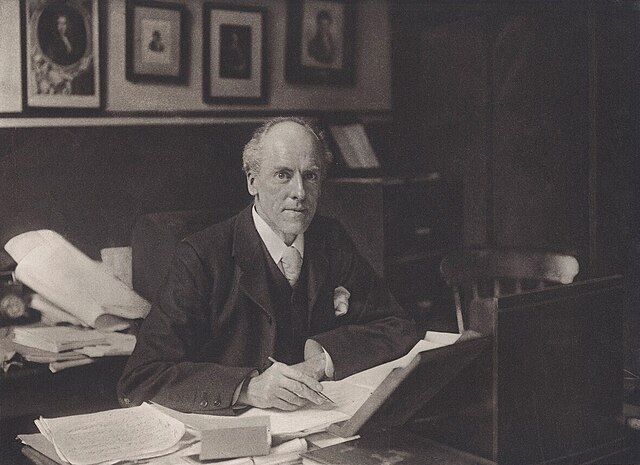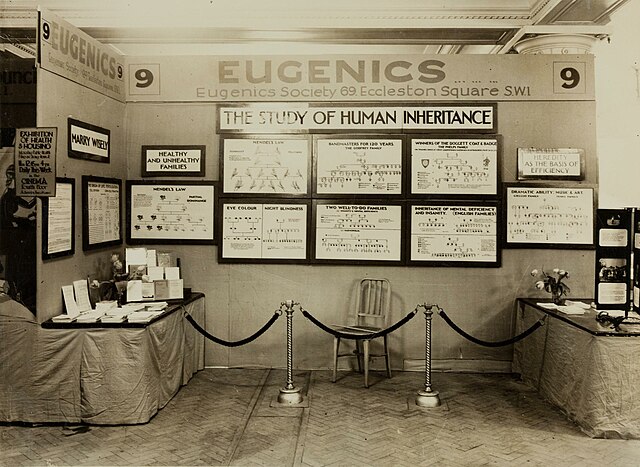Karl Pearson was an English eugenicist, mathematician, and biostatistician. He has been credited with establishing the discipline of mathematical statistics. He founded the world's first university statistics department at University College London in 1911, and contributed significantly to the field of biometrics and meteorology. Pearson was also a proponent of Social Darwinism and eugenics, and his thought is an example of what is today described as scientific racism. Pearson was a protégé and biographer of Sir Francis Galton. He edited and completed both William Kingdon Clifford's Common Sense of the Exact Sciences (1885) and Isaac Todhunter's History of the Theory of Elasticity, Vol. 1 (1886–1893) and Vol. 2 (1893), following their deaths.
Pearson in 1912
Pearson with Sir Francis Galton, 1909 or 1910.
Karl Pearson at work, 1910
Eugenics is a set of beliefs and practices that aim to improve the genetic quality of a human population. Historically, eugenicists have attempted to alter human gene pools by excluding people and groups judged to be inferior or promoting those judged to be superior. In recent years, the term has seen a revival in bioethical discussions on the usage of new technologies such as CRISPR and genetic screening, with heated debate around whether these technologies should be considered eugenics or not.
A 1930s exhibit by the Eugenics Society. Two of the signs read "Healthy and Unhealthy Families" and "Heredity as the Basis of Efficiency".
Francis Galton, an early eugenicist, coined the term itself.[need quotation to verify]
G. K. Chesterton, an opponent of eugenics, photographed by Ernest Herbert Mills in 1909
Schloss Hartheim, a former center for Nazi Germany's Aktion T4 campaign





![Francis Galton, an early eugenicist, coined the term itself.[need quotation to verify]](https://upload.wikimedia.org/wikipedia/commons/thumb/e/ec/Francis_Galton_1850s.jpg/441px-Francis_Galton_1850s.jpg)

